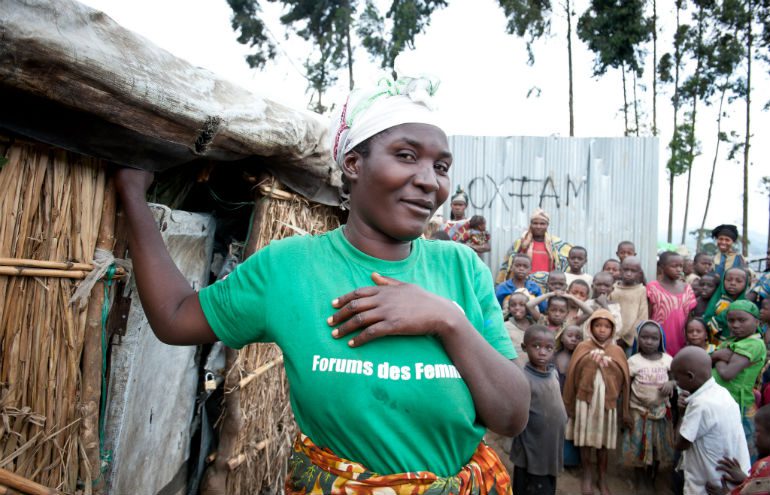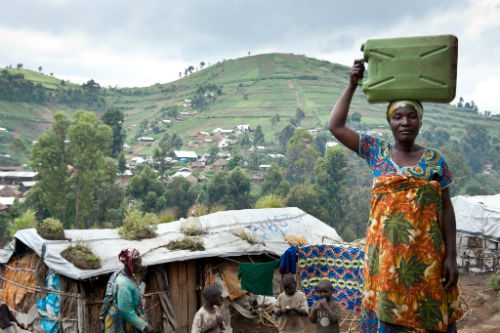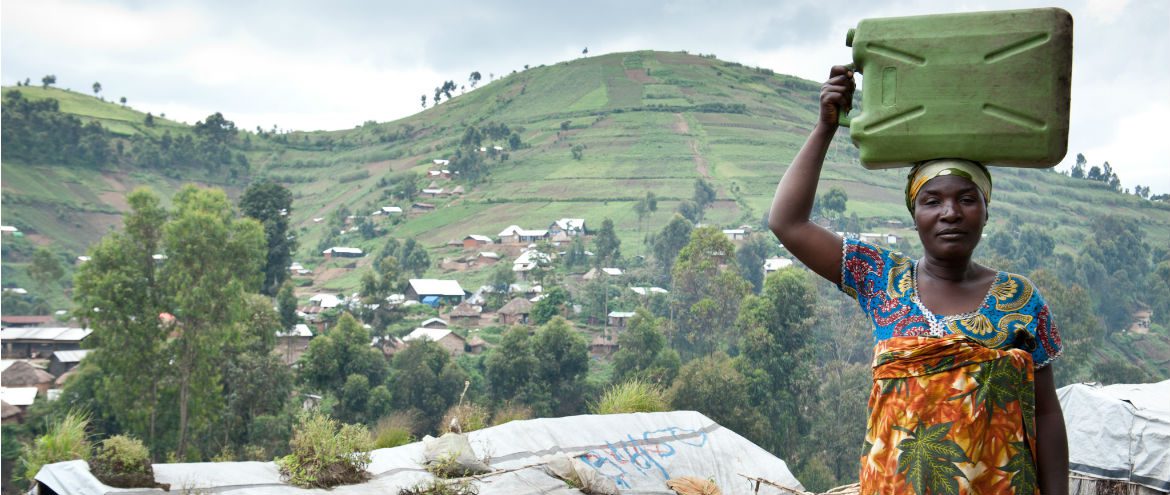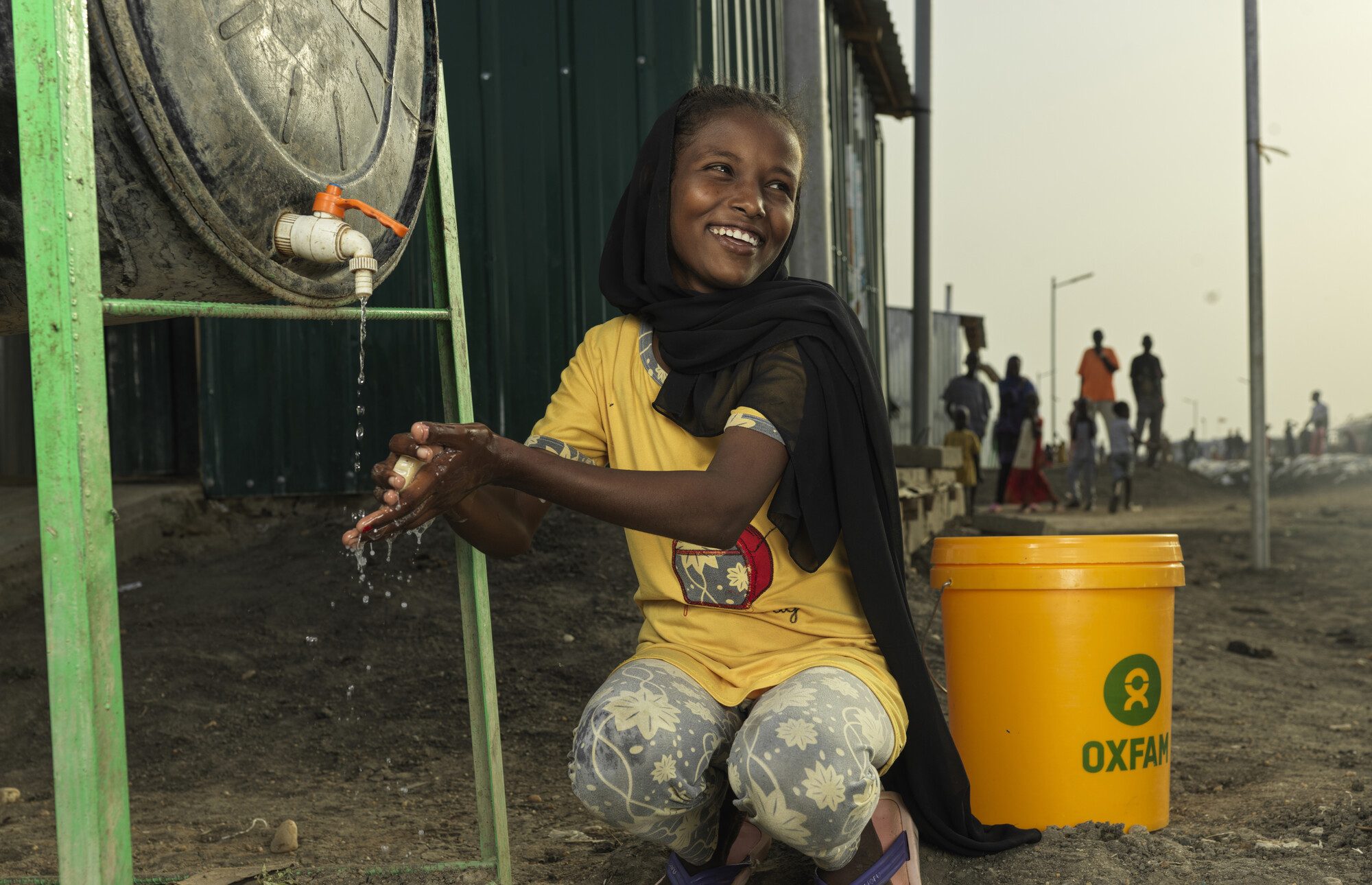“There is only one activity in the community — surviving.” Louise and her family escaped armed rebels, but now they face a new danger — deadly, dirty water.
In the Democratic Republic of Congo (DRC) decades of armed conflict has forced thousands of people to flee for their lives. For the first time in decades, there is hope for peace. A ceasefire means we have an opportunity to ensure families like Louise’s are safe from dirty-water diseases.
We don’t know how long the current ceasefire will last, or how much time our rapid response teams will have. What we do know is that children are dying from dirty-water diseases already.
Louise and her family survived the conflict by hiding in the mountains. Cut off from help, Louise lost her husband and three of her children to disease in just one week.

“There were no services to help us — there was nothing there at all. It’s on the mountain that my family died. My first born died on Monday, the second on Tuesday, the third on Thursday and my husband on Sunday” said Louise.
“Now I have my three girls (aged 17, 15 and six years old), a girl I rescued from the road and two boys (aged 13 and seven years old).
“I don’t have means to cater for them. I can’t buy them clothes. I don’t have better clothes for them to wear. What I am wearing the church gave to me.”
Louise and her remaining children now live in Buporo camp in Rubaya. Local communities have almost trebled in size due to the thousands of people fleeing conflict, placing a heavy strain on local water resources.
They have survived the violence, but they can’t survive without clean water.
The displaced people are forced to walk long distances for water or share the limited amount available in the neighbouring community. Conditions in the camp are cramped and overcrowded. Here, diseases like cholera are the biggest threat.
But ever since Oxfam supporters helped build a water tank nearby, Louise knows she can keep her family safe.
“Water used to be a serious problem because there was only one stream … after some time Oxfam built us a tank and now water is in abundance so people no longer get sick”.
Today Oxfam is supplying close to 38,000 people with clean water.
Thanks to the support of generous donors like you, we have built gravity water systems, dug latrines and constructed showers in two camps and the surrounding communities. Oxfam has also helped people dispose of solid waste, installed hand washing facilities and provided latrine kits for keeping the services clean.
Oxfam is also helping people like Louise advocate for their rights. The creation of water, sanitation and hygiene (WASH) committees, has empowered communities to share hygiene information and monitor health risks. Despite incredible hardship, Louise is doing everything she can to stop the suffering of others. She is President of the hygiene committee and member of the women’s forum.
“Working together is for the benefit of everyone. We have to come together or people will get sick.”
“We are now able to train others. Before we were doing this work, the authorities would not take feedback easily. But now, thank God, we have t-shirts they know we are from the committee. We have visibility. Even the authorities and police respect us. Things are now open.
“We felt proud … That day we sang until people thought we were drunk. We felt we were free.”
Watch Louise’s incredible story of loss, strength and survival:
https://www.youtube.com/watch?v=XLRQM-v14k0
You can help save lives in the DRC
With your support, we’ll work around the clock during the ceasefire to install Oxfam-engineered water tanks. Each will supply several families with clean water – protecting their children from deadly disease. And with your help, others like Louise will find the strength to survive.
You can help save lives in the DRC with clean water, sanitation and hygiene. Donate today to help families like Louise’s in their fight for survival.
All photos by: Eleanor Farmer/Oxfam

You can help keep families safe
They survived the violence, but they couldn’t survive without clean water. Please donate today to help families in the DRC in their fight for survival.



